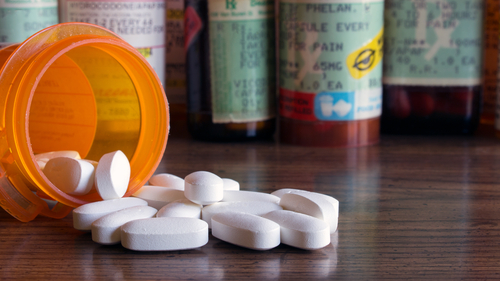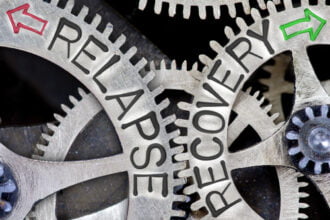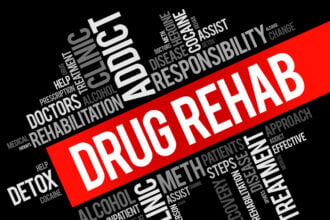Opioid addiction affects millions of Americans every day, and the Centers for Disease Control and Prevention estimates that approximately 68 percent of all drug overdose deaths in the United States in 2017 were linked to opioids. Approximately 130 people die each day in the United States because of opioid overdoses.
Despite these alarming statistics, prescription opioids are frequently given to patients to help with pain management. Doctors will often prescribe this medication as a temporary measure to deal with pain following a surgery, or they may prescribe ongoing use of the drugs to help patients manage chronic pain.
While these drugs can provide much-needed pain relief, dependency and addiction are all too common, even when the medication was properly prescribed. WebMD estimates that between “eight and 12 percent of people who take opioids develop an opioid use disorder.”
Whether you’ve been prescribed an opioid medication or you are trying to recover from addiction, understanding when your control of your drug use begins to slip and knowing how to act next can make all the difference for your long-term health outcomes.
Know the Warning Signs
You won’t know if your use of opioids is starting to slip if you can’t recognize the signs of addiction — which are different than dependency. Your body is technically dependent on opioids for pain management if you are using a valid prescription for this purpose. However, the longer you take opioids, and if you start to use more than the amount indicated by your prescription, the more likely you are to develop an addiction.
Addiction entails an intense psychological or physical craving for the drug. The desire to use the opioids becomes overpowering, often interfering with work, family time and other aspects of day to day life. Opioid misuse can also be identified by other symptoms, including irritability, poor coordination, depression, changes in sleep patterns and more.
You may also begin to feel worse when not using the drug as your body goes through withdrawal. In addition to feeling strong cravings for the opiate, individuals often experience muscle cramps, nausea and anxiety.
When you are mindful of these potential symptoms of abuse before you start taking a prescription opioid, you will be better able to recognize when your usage has shifted from following your doctor’s guidelines to potentially dangerous misuse.
Be Aware of Treatment Myths and Facts
Once you’re aware that a problem exists, it is crucial that you seek help as soon as possible. While there are many factors to consider when choosing a treatment facility or plan, there is also a lot of misinformation out there that keeps people from getting the kind of help they need.
In an email conversation, Jon Read, senior advisor at Confidant Health explained, “The biggest problem right now is that addiction treatment is largely for-profit. Many treatment facilities are focused on filling their programs rather than achieving the best outcomes for their patients.”
Continued Read, “Worse still, many people go online to look for objective information, only to go to a site where the goal is to take them to a call center. The industry needs reform, but for now, individuals in need of treatment and their families must be cautious when selecting a treatment facility.”
Opioid addiction treatment needs can vary from person to person. While chemical treatments work for some, others are also dealing with underlying mental health disorders that contribute to their misuse.
As such, those seeking treatment should thoroughly research facilities and their directors before committing to anything. If you need dual diagnosis care, look for a facility director with a background in psychology and mental health. You can also seek input from your personal physician, who can provide a more unbiased opinion than a treatment center’s website.
Consider the Consequences of Misuse
While seeking treatment is essential, many people simply do not feel motivated to get the care they need to overcome their opioid addiction. Many feel ashamed of their behavior, or think that friends or family would consider them a failure because of their opioid abuse. Others are reluctant to give up the temporary pain relief that comes from using opioids.
While you cannot control how others respond to your addiction, it becomes much easier to develop the will to seek treatment when you more fully consider the consequences of continued misuse.
Opioid abuse disrupts family relationships, your personal finances, career opportunities and more. Current data from the National Institute on Drug Abuse indicates that 80 percent of heroin users misused prescription opioids before switching to the more powerful — and more dangerous — drug.
Slipping up in your use of opioids doesn’t make you a bad person. But it is a behavior that you cannot allow to continue. The better you understand the potentially fatal consequences of continued opioid misuse, the easier it will be to speak up with family and friends and to seek out the professional support you need to overcome your addiction.
A Drug-Free Future
The road to recovery is rarely easy, especially when dealing with highly addictive substances such as opioids. However, as you learn to identify symptoms of misuse and seek appropriate recovery options, you can regain control of your life and keep these substances from destroying your future.










